Rebecca Humphries talks gaslighting, Seann Walsh and learning to love healthily
Humphries' book, Why Did You Stay, came out earlier this year.
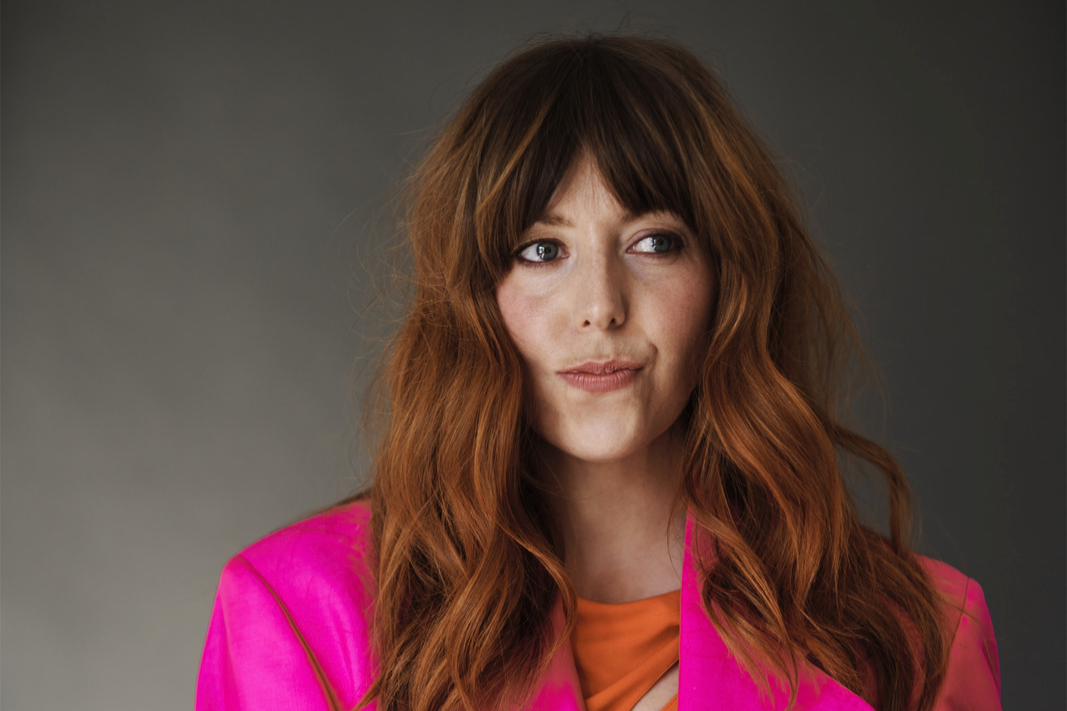

If you're looking to be reminded of your self-worth, there's no better role model than Rebecca Humphries.
You probably know her name in relation to her very public 2018 break up with comedian Seann Walsh, after photographs of Walsh kissing his Strictly Come Dancing partner Katya Jones hit the tabloids.
Despite all advice to stay silent to protect her acting career, Humphries tweeted a powerful statement, revealing the gaslighting that she had been subjected to and offering advice to women trapped in emotionally abusive relationships.
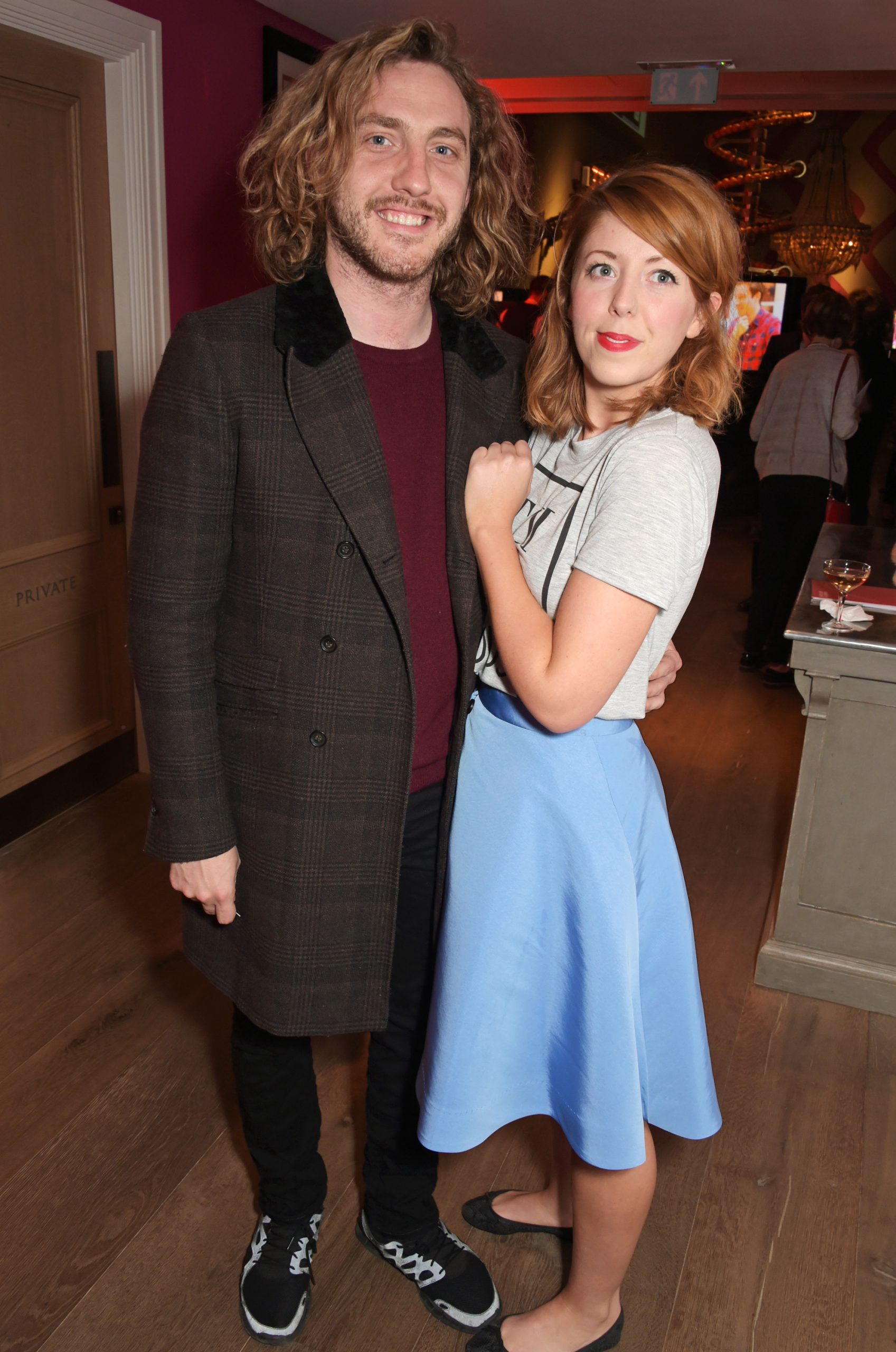
"My name is Rebecca Humphries and I am not a victim," her 2018 statement read.
"Those pictures were taken on October 3rd. It was my birthday. I was alone at home when Sean texted at 10pm saying the two of them were going for one innocent drink. We spoke and I told him, not for the first time, that his actions over the past three weeks had led me to believe something inappropriate was going on. He aggressively, and repeatedly, called me a psycho/ nuts/ mental. As he has done countless times throughout our relationship when I've questioned his inappropriate, hurtful behaviour.
"But - this whole business has served to remind me that I am a strong, capable person who is now free; and no victim. I have a voice and will use it by saying this to any woman out there who deep down feels worthless and trapped with a man they love: Believe in yourself and your instincts. It's more than lying. It's controlling. Tell some very close friends who, if they're anything like my wonderful network, will swoop in and take care of the logistics and of you.
"It's important also to recognise that in these situations those who hold power over you are insecure and fragile, and their need for control comes from a place of vulnerability. I think it certainly does in Sean's case. Despite everything, I hope he gets what he wants from this. I'm not sorry I took the cat though."
Marie Claire Newsletter
Celebrity news, beauty, fashion advice, and fascinating features, delivered straight to your inbox!
While she was warned that the tweet would sink her career, Humphries’ statement actually went viral and she became a household name.
Her words on gaslighting struck a chord, and women across the world were empowered to leave and change abusive relationships. She had not only reclaimed her voice, but had passed the microphone to women all over the world to use their own too.
While Humphries was offered multiple book deals at the time, she chose to focus on herself, undergoing therapy and learning more about what she had been through.
Over the pandemic however, she felt a duty to the women locked in with perpetrators of emotional abuse and wanted to use her story to spread awareness.
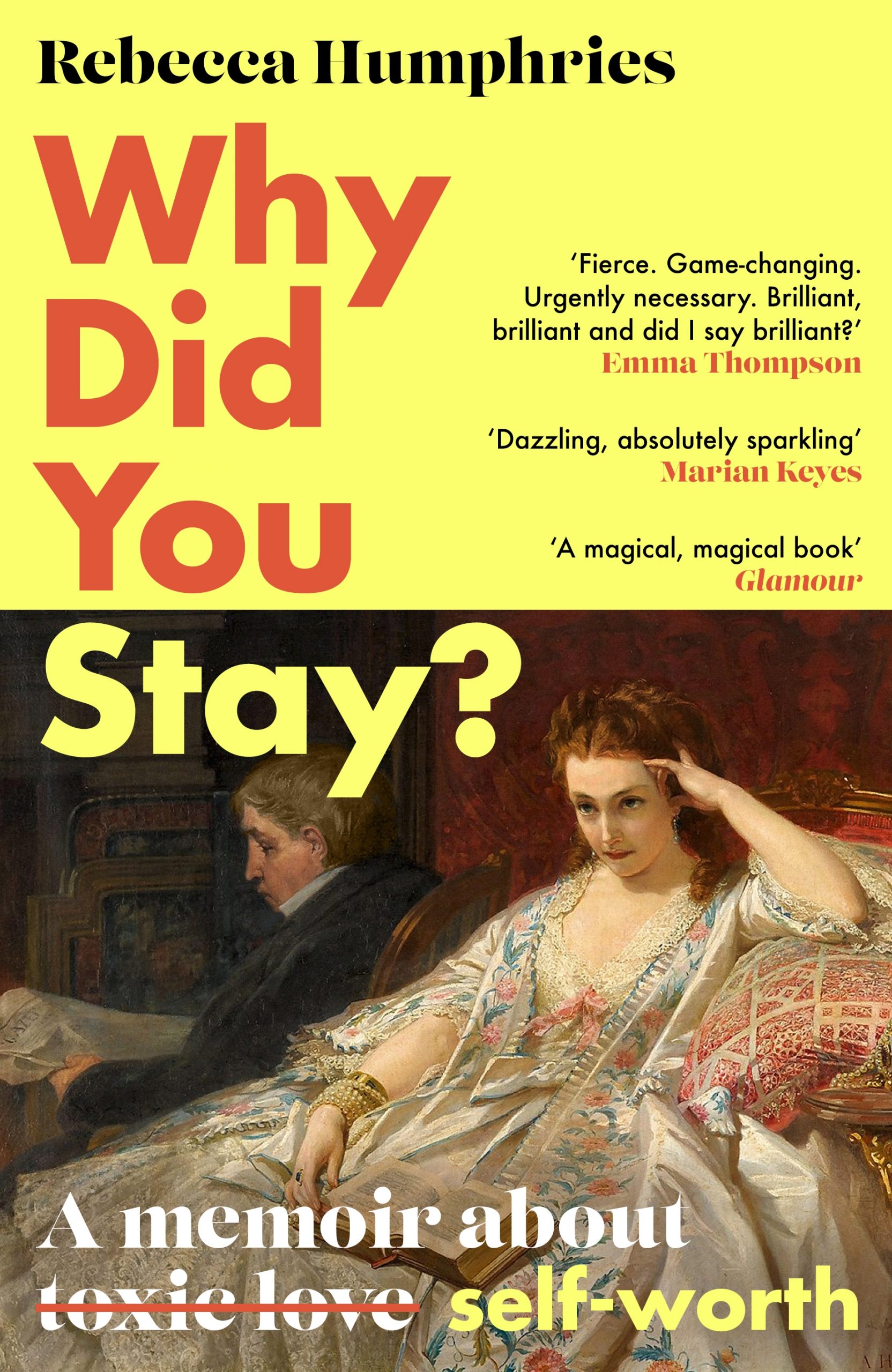
This comes in the form of Why Did You Stay?, her fantastic memoir on emotional abuse and self-worth.
Empowering, insightful, funny and so very important - this book should be read by women and men everywhere. It is quite frankly life-changing.
MC Features Editor Jenny Proudfoot sat down with Rebecca Humphries to talk gaslighting, the feminine divine and why loving healthily should be taught from a young age.
What was it that actually prompted you to sit down and write this book?
Well, in 2018 when I was stood in my friend's living room with this little bit of paper with a handwritten statement on it, I knew no one was going to read it. It was just for me and I needed to post it. All I did was say what happened in chronological order and what I've learnt - that's it. It was a very specific experience and it was about Strictly Come Dancing. Only a handful of people have experienced what I did, and no one while their partner was still on the show. But despite that, thousands of people came back to me and said they have been through the exact same thing. It was such a testament to specificity of story and feeling being the most universal thing of all. If I tried to appeal to everyone, I would have appealed to no one, and I got messages for months and years afterwards saying, "You empowered me in that moment and made me assess my life in a different way".
So then fast-forward to the pandemic, and I knew that all these women were trapped in these situations, locked in with people who were controlling them. People who may not be doing anything that pop culture would deem violent, but experiencing low level insidious violence as a result of things like gaslighting, emotional abuse and coercive control. I just thought that if I could even recreate a small amount of what I achieved in 2018 by writing a book about what’s happened since, and about how when I moved away from that, that’s when my life started, then I have to do it. It was that need to get this story of empowerment and of moving away from something better for it having happened. It was that need to help other people with that story that kept me writing it as long I wrote it, which by the way was a really long time.
Was it something you knew you were going to do back in 2018?
I was offered a couple of book deals at the time, and they sounded quite tasty. I even had a couple of meetings but I was confused as to what the story was because I was still in it. And actually, what I needed was to ensure that I had worked through my trauma - that I had dealt with my feelings about that particular situation but also about the relationship and myself. I had to go back countless years in order to sit down and write this, not as a revenge of tragedy, but as something that actually had integrity. A lot of people ask me if it was cathartic, but I did that bit before I wrote the book.
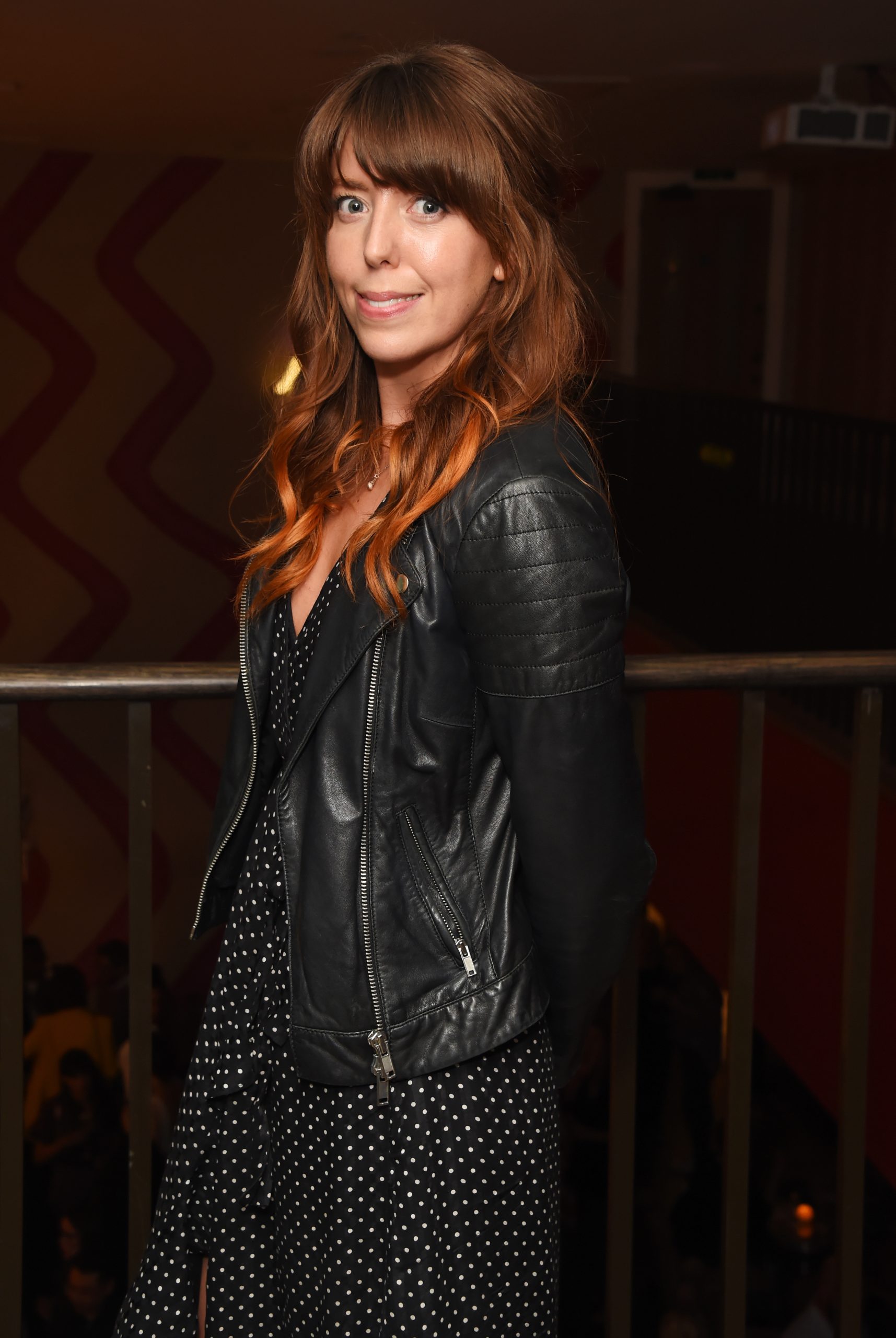
Some authors describe writing a memoir as having to mine themselves emotionally. Was that something you experienced?
To be honest, some of those scenes in the book are etched on my retinas. I'm a storyteller by profession, not as a writer but as an actress. And so as such I’ve spent 10+ years putting myself into circumstances and believing in them, creating worlds around where I’m sitting. Maybe that was something that aided me in this process - helped me not get dragged into the mood or the tone. But really, in fact it's just because I had loads of therapy. I know how to protect myself and those feelings and I’ve spent a lot of years validating my experience. I was most afraid when writing this book that when I revisited it, I would think that I was making it up, because I have been made to think that for a really long time. But when it actually came to it, I just had the tools and I was equipped with ways to listen to that voice and tell myself, "No Rebecca, you are not making this up". To tell myself that I am not crazy, I am not psychotic - this really happened and my experience is valid. It was just about ensuring that that muscle was exercised when I sat down to write.
The detail you go into from years ago is incredible. Did you recount it from memory or did you document your experience?
I’m an avid diarist, but during that relationship I wasn't. I would just claw at moments and scraps of paper when I was in real pain and write almost incomprehensible scrawls about how I was feeling, where my brain was, and how little I valued or cared for myself. I only found them later during the pandemic, and that moment was actually part of the reason for writing this book. I pulled open this drawer and saw all these scraps of paper with all these ramblings. There I am standing as a woman who has come on so much in those two years and sees herself in a completely different way, and is surrounded by a completely different circle of people who enhance her life. And seeing this, I thought, there are going to be women who are the woman that I'm seeing on this page at the moment, and they need to know that two years down the line is all it might take.
You wrote that learning about gaslighting gave you back your voice...
The biggest threat that faces humanity is unconsciousness, because if you do not have a way of defining your experience, then it's not valid to you, and you think that you are alone. When I found out about what gaslighting meant, and I realised that it was a term that had been given a name because of just how common it was and how long it’s been going on, it took the power from the situation and it handed it back to me. I know what this is now, I can identity all these symptoms of it, I can tick off a list and I know that I am not the only person to have experienced this so I also have a network. I can reach out to other people and I can speak freely about my experience in a way that feels informed and not lost. It absolutely changed everything and it's that consciousness that is crucial.
Why is there such unconsciousness around gaslighting?
This particular form of emotional abuse is something that we are only just getting our heads around, and as such it stands to reason that we are not seeing it as much in pop culture. I completely appreciate that it's not the most exciting thing to see on the TV or in a movie. If you're going to write something about a perpetrator, you're going to make them this really tough domestic terrorist, and it's the same with the victim - there is a very clear archetype that we all associate with that. Mine is Little Mo from EastEnders. That's what that looks like for me, and those moments of high drama between Little Mo and her husband Trevor are to me the benchmark for what this looks like, and actually it's completely false. It's obviously incredibly important to highlight and keep that conversation going, but over the years what those extreme kinds of narrative have done is stopped people identifying as victims in that circumstance. And that means that so much has been allowed to insidiously carry on for such a long time. So we really just need to keep having these conversations. I’m not the first person to say these things - I just want to be part of this conservation. It needs to get wider and wider so that we can speak to our friends and get comfortable with sharing things about our relationships. To ensure that we have a new language that is going to make love loads healthier for all of us.
For young people especially...
I'm baffled that no one is teaching young people about this stuff. We need to find a way and a language to do this and to teach young people how to love well - that's something I'm definitely interested in stepping into. The only thing that none of us get taught is how to love and how to parent - arguably the two most important things in the world. And yet these are the only two things, and especially given the age of the internet, that we are left to our own devices and have to learn on the job.
As you say in the book, our generation really has been conditioned by rom-coms and Disney films in how we perceive ourselves and what we deserve...
I think millennials are the last generation. We have the benefit of education and so much information to know full well that the things we were taught when we were young are crap and unhelpful. We know that those narratives are false and deluded. The problem is that we were the last ones to ingest them, so somewhere in our body we still have this longing, and it's completely at odds with what it is that we know to be true. So there is just this absolute war that is raging within us the whole time. We know full well that a handsome prince and throwing bits of your life out of the window to step into a man's life are completely toxic, but there is still a bit of us that would do it given half the chance.
I loved how this book embraces and quenches that rage in such an empowering way...
That's music to my ears. You know what, we are opening our eyes to the fact that rage is going to happen, but the only way for it to be healthy is to own it. If you ignore it, that is when it comes for you because it turns into resentment and vindictiveness, and that is just poison that you swallow yourself. But owning and stepping into your rage absolutely enables other people to be able to do the same thing in a healthy way and support one another.
One part of the book that really struck me was the long history of removing power from "threatening" women...
The thing that is so fascinating to me is this idea of the divine feminine. It really was the first spiritual narrative. It was the energy that everyone either aspired to inhabit or take care of at all costs because of its overwhelming power. And then suddenly it became threatening, and all of these other narratives started creeping in. There’s Eve and Lilith - the characters that destroyed the world and destroyed peace. I'm absolutely not here to bash religion, and I completely see the joy in it, but all of these stories started creeping in and turned it around to make men the powerful force and women the destroyers. Obviously capitalism thrives on it, and it comes back to today where women are absolutely fed this narrative on a daily basis. We have to ensure that we spend an hour getting ready every morning, we straighten our hair, we buy products but no sulphates so that will be £20 extra, and then you need skincare that costs £60 for one moisturiser. We are just fed these narratives that eat away at our time and our money. And the only reason I can think of why that's happening is because if we had all of that back, we would be so powerful. We would be so unbelievably powerful, and we are confined by fear of the patriarchy all the time.
And it all starts from childhood...
The second a little girl opens her gob and says loudly that she doesn't like something, that she wants this or that she doesn't want that, that's the second someone is going to shame her for being too loud. And when you are identified as that from a really young age, it starts living like a separate being under your skin, and you hear it constantly. You hear “too much” or “not enough” or both, all the time - and it lives under you. And suddenly before you know what's happening, you’re in situations at work, with your friends, with your family or in romantic relationships. Someone starts saying things like, “you’re being too much”, “you’re being too loud”, “don't embarrass me”, “you’re mental”, or “you’re a psychopath”, and it makes total sense. You don't think to question it and suddenly before you know what’s happening, you’ve self-identified as that. That’s where it gets really dangerous and that’s why you don't walk away from those situations. So actually it comes back to empowering people to believe they deserve more. So that when you hear those voices that go “you’re a psychopath”, you go: “It’s not okay for you to say that to me”. It never occurred to me that it wasn't OK to hear that.
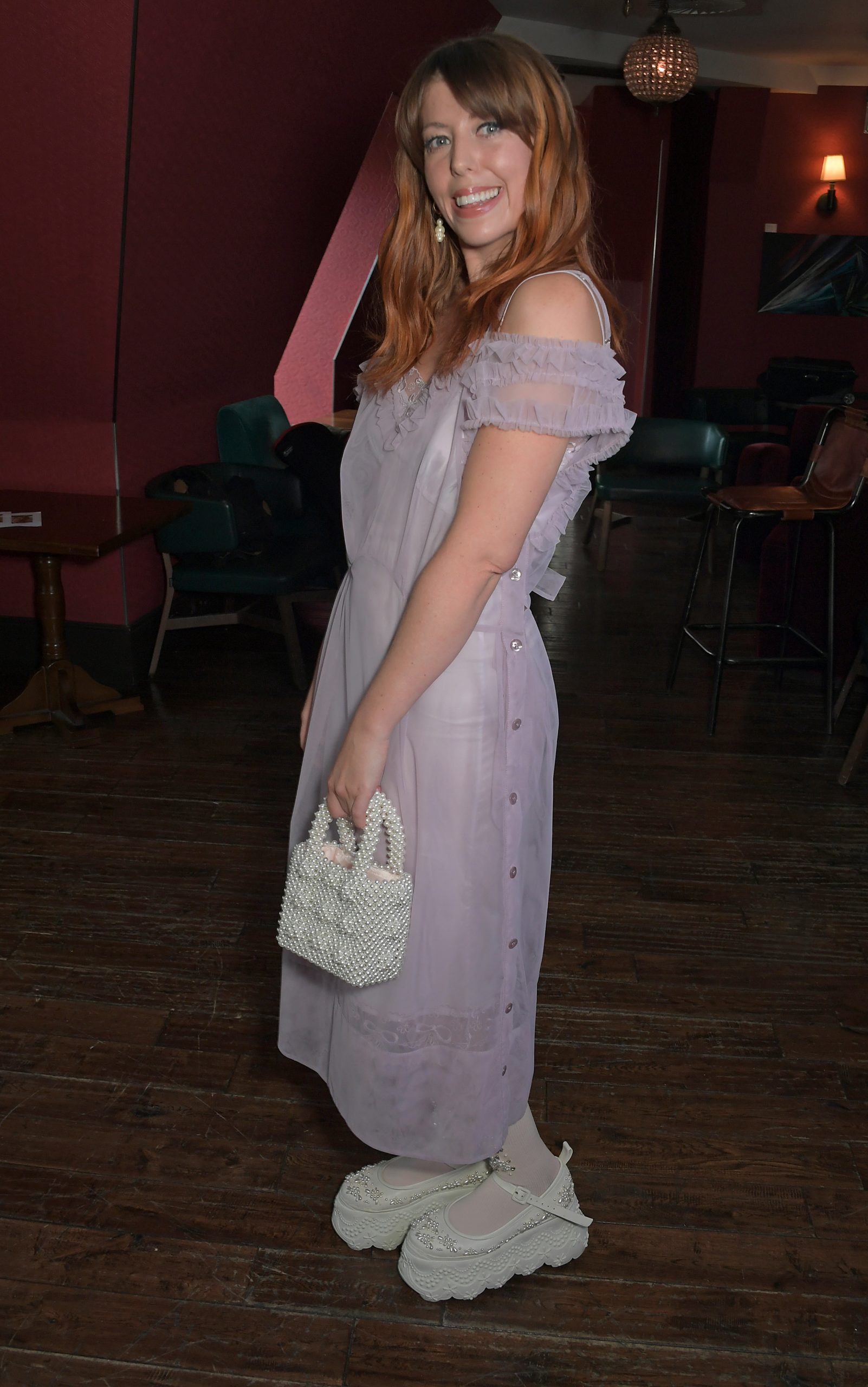
Is there a piece of advice that you would give women out there looking to reclaim their power?
I feel quite prickly when I get asked this question as a I feel like I have twenty voices fighting for space. Something I would say that has always helped me (and it wasn't me who said it which is really annoying) is, the best day of your life hasn't happened yet, and you haven't met everyone who is going to love you. I just think if I had known or believed that then, my life might've been very different. Another great one is, jump and the net will appear. That was my absolute experience. If you make a step towards bravery, everything will fall into place. I'm telling you, the universe rewards bravery and you never know until you do it, but it does. Also, for God's sake, talk to your friends and listen.
How does it feel to have become a bit of a feminist guru?
I mean, “guru” is a word I haven't heard associated with me until today - I’ve got the saboteur on my shoulder saying, false prophet. This is just a book that I'm really hoping will get passed on from women to women and from women to men as well to just widen this conversation. I have a more active interest in being part of a collective than I am galloping forward with everyone else behind me. I want to be having interesting conversations like this and to be helping one another. That's what it's all about - it takes a village to raise each other up.
This memoir is hilarious. Was it important for you to showcase how funny you actually are?
To be honest, there's just no other way. It absolutely wasn't intentional - I just wrote in my voice and it got away with me. All I wanted was for it to sound like someone you know and like, and to ensure that it would be a great, lively, bouncy and engaging read. It also happened to be about something that we as a society need to speak about, and to me that was the only way to engage. I feel like there is a whole demographic of people that are missing out on this stuff because they prefer to read things that seems much more fun.
What role does reading play in your life?
I absolutely love it but I’m the world's slowest reader - I am terrible. I recently read Untamed by Glennon Doyle - I actually read it after I wrote my book and found that she says the same things as me but is more concise and funnier. But there's this amazing bit of information in it about Selah - a word in the Hebrew bible to indicate when the reader is supposed to pause and take in what's just been said. It happens at random points, but for me it's like there is one at the end of every sentence. The books that I enjoy reading seem to be so unbelievably profound that I need to digest each sentence and take it in.
Is there a book that you go back to time and time again?
The one I go back to time after time is All About Love by Bell Hooks because it is game-changingly beautiful and includes all of my favourite things - hope, positivity, compassion and understanding. It doesn't shy away from sadness but it does so with such compassion - it is incredibly inspiring. And then a book I read recently that I couldn't put down was Delicacy by Katie Wix, who I just think is totally hilarious. Her writing is so beautifully erratic. I love watching her on TV and when I read her book, it felt like I had gotten under a layer of her, and I just saw this beautiful soul.
What message do you hope people will take away from your memoir?
I really hope that this book will cause people to look around and see the abundance of love and romance that exists in their life that doesn't have anything to do with their partner. Because love and romance is absolutely everywhere, and they often have very little to do with having someone standing next to you.
Why Did You Stay? A Memoir About Self-Worth by Rebecca Humphries, £16.99, is available to buy now.

Jenny Proudfoot is an award-winning journalist, specialising in lifestyle, culture, entertainment, international development and politics. She has worked at Marie Claire UK for seven years, rising from intern to Features Editor and is now the most published Marie Claire writer of all time. She was made a 30 under 30 award-winner last year and named a rising star in journalism by the Professional Publishers Association.
-
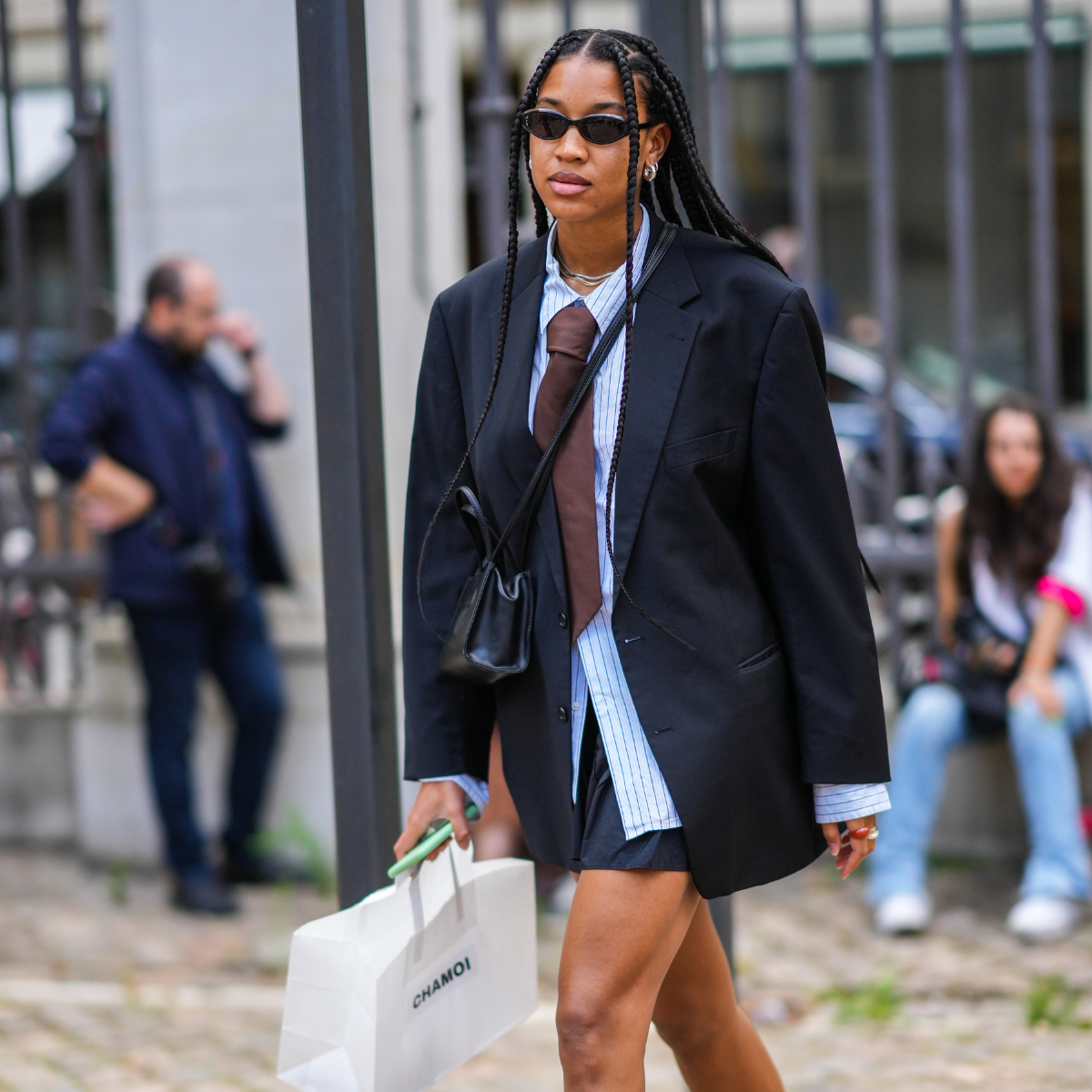 Ties are the unexpected cool-girl accessory to invest in this season
Ties are the unexpected cool-girl accessory to invest in this seasonSchool is in session
By Sofia Piza
-
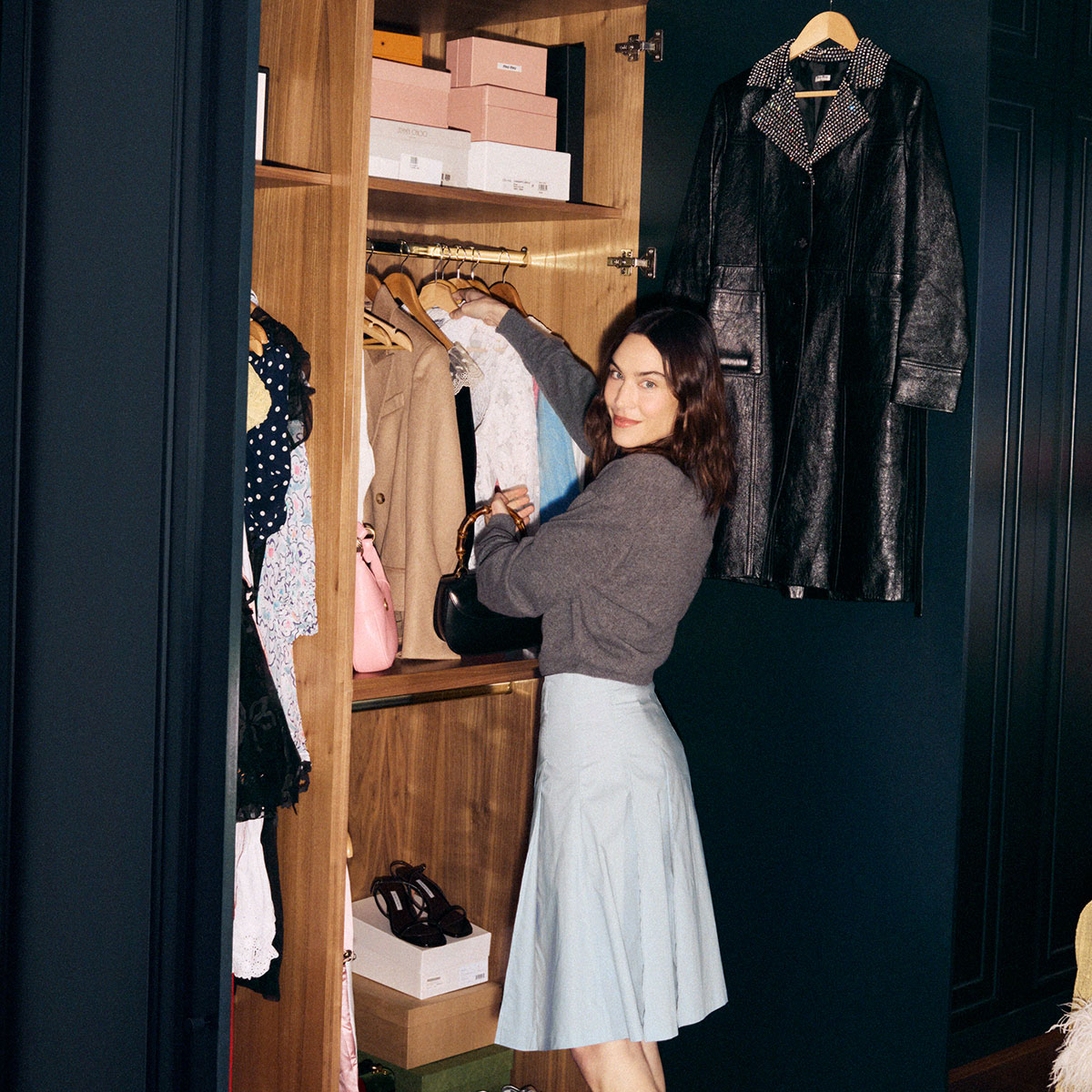 This is not a drill: you can now shop Alexa Chung's actual wardrobe on Vinted
This is not a drill: you can now shop Alexa Chung's actual wardrobe on VintedOwn a piece of sartorial history
By Penny Goldstone
-
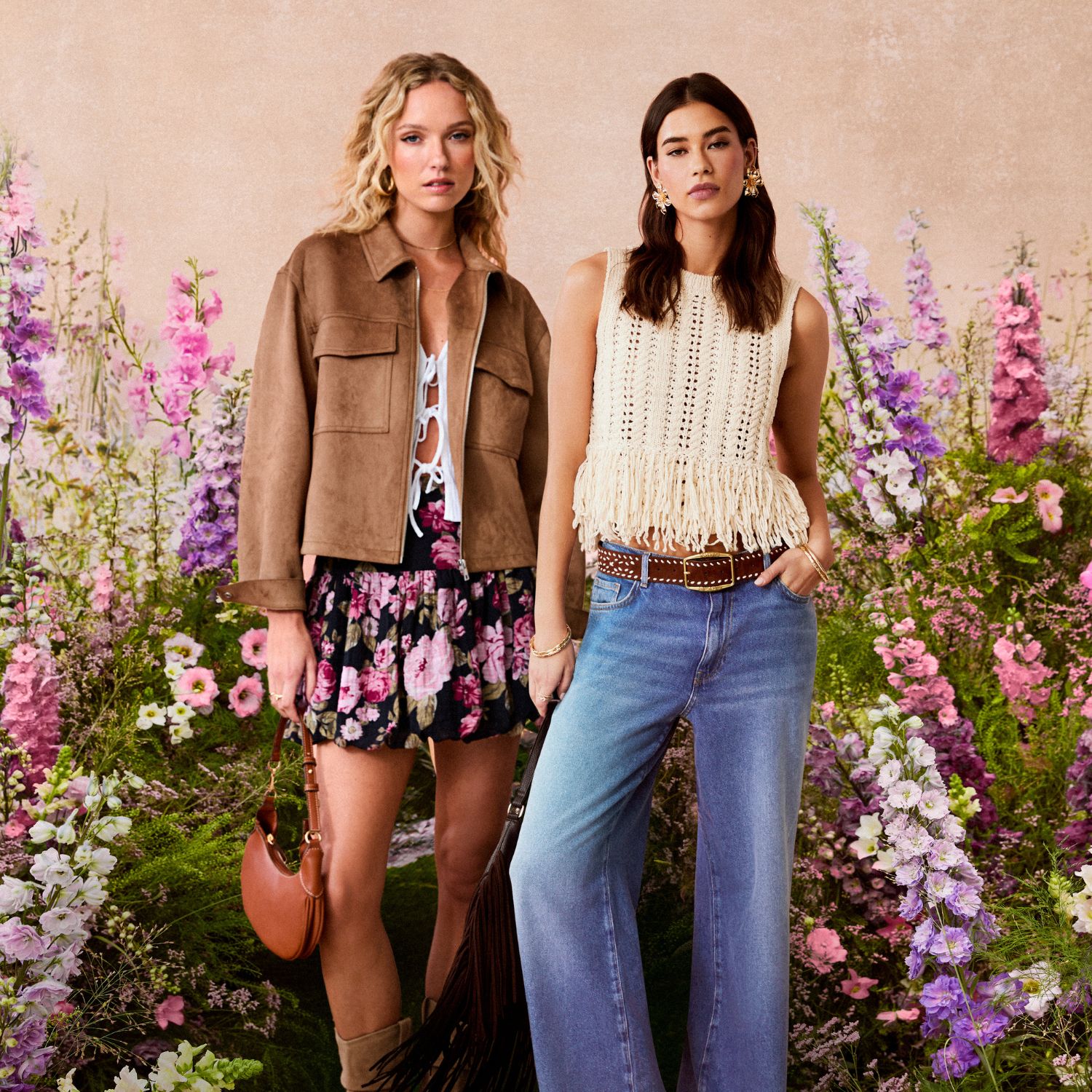 New Look’s spring collection has dropped—as a picky fashion editor, I’m seriously impressed
New Look’s spring collection has dropped—as a picky fashion editor, I’m seriously impressedSpring trends at affordable prices
By Jazzria Harris